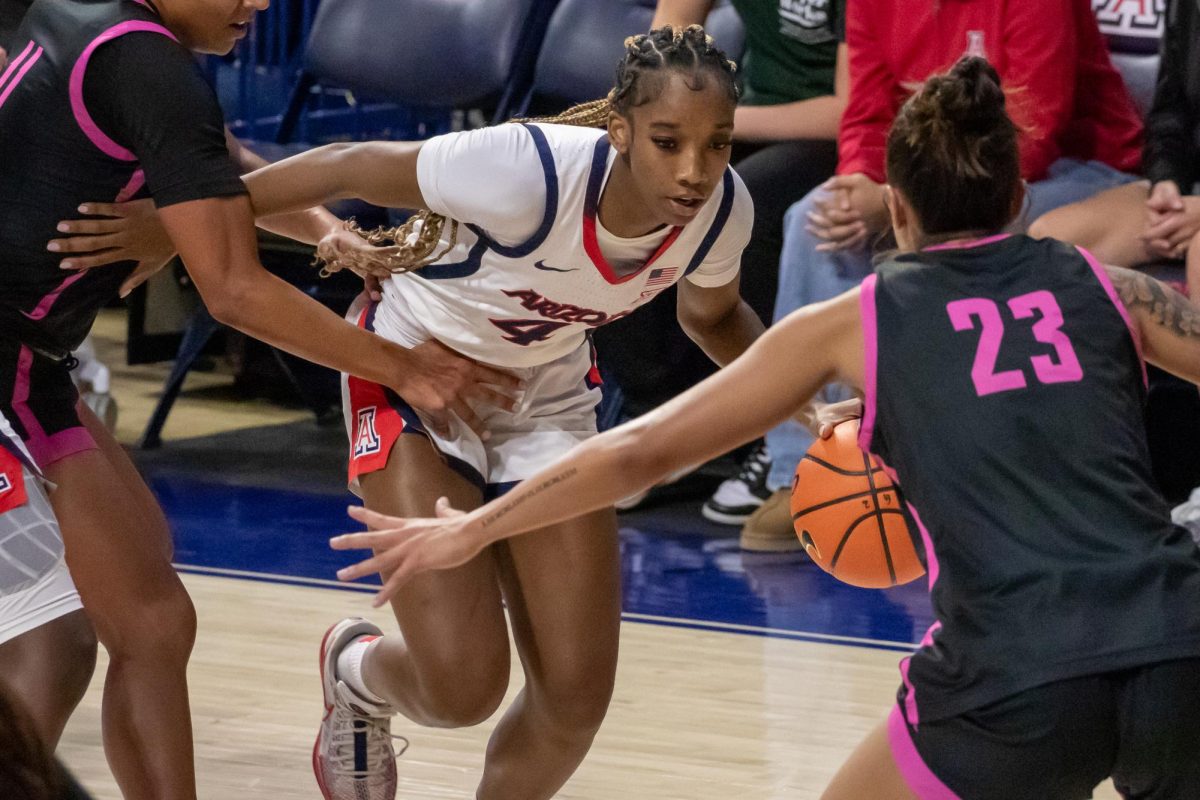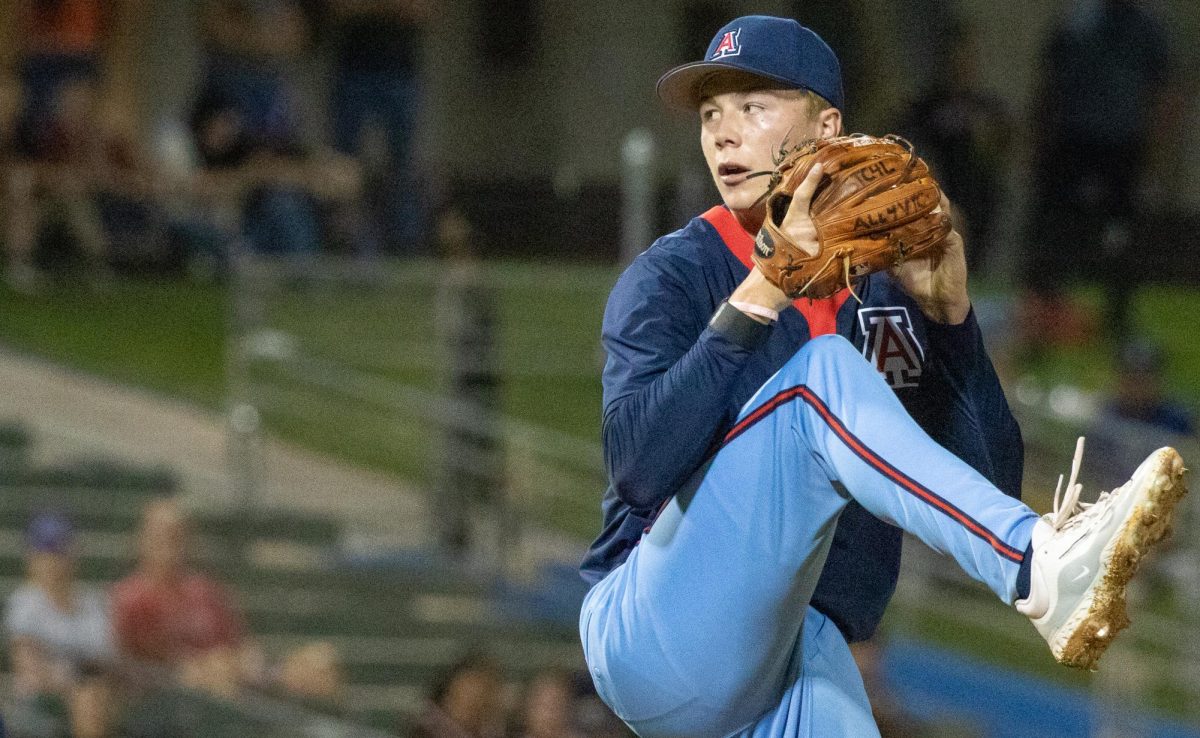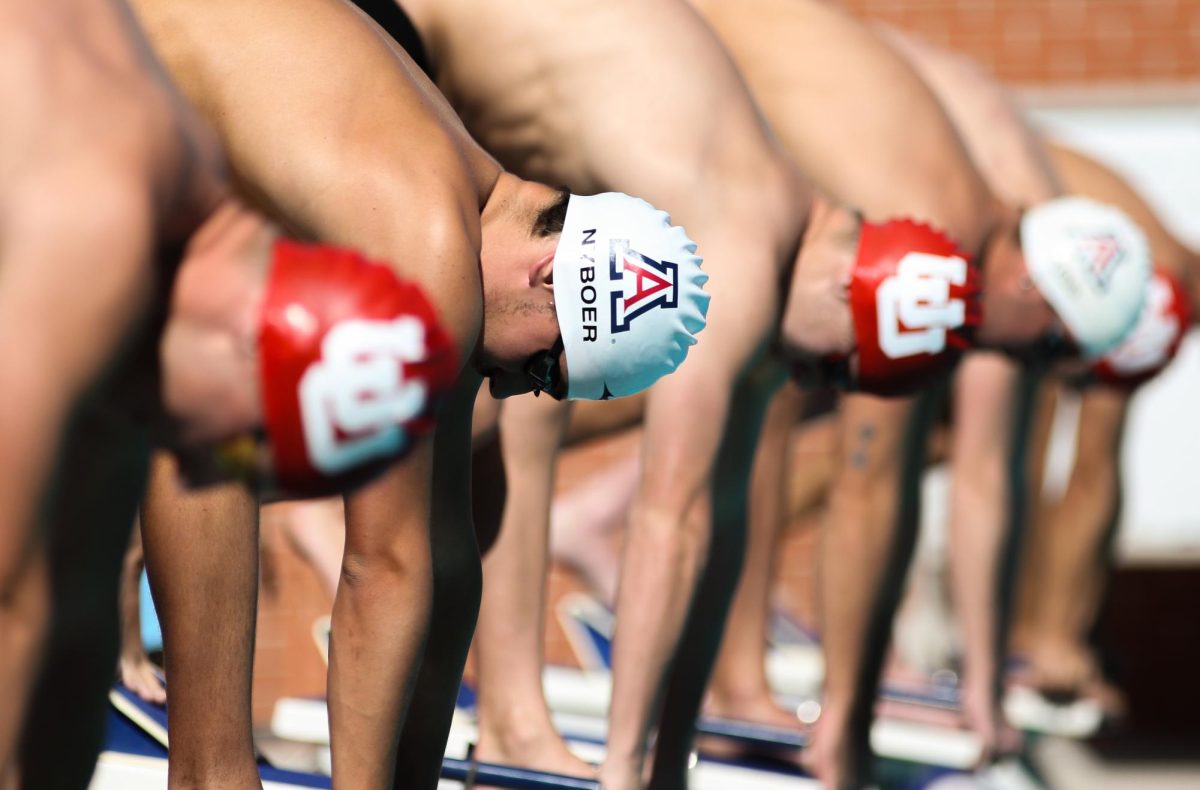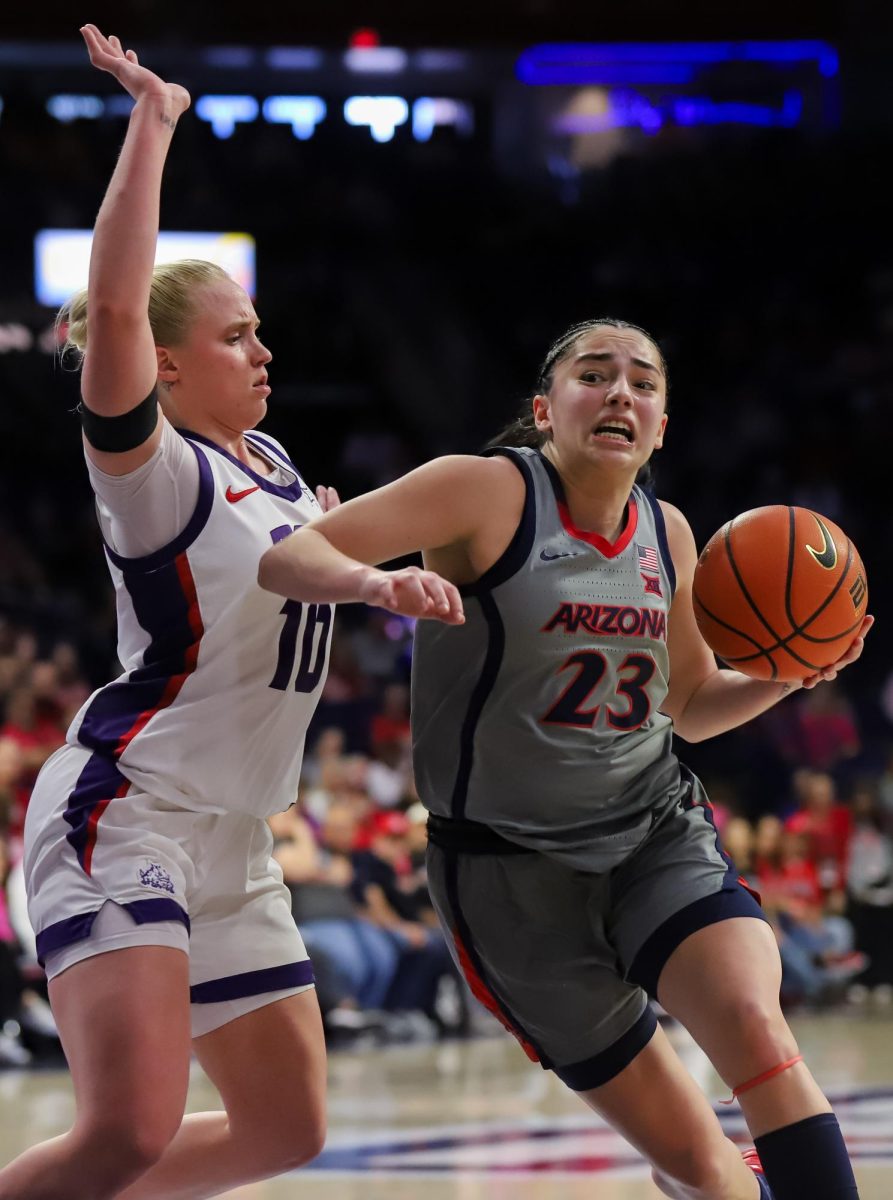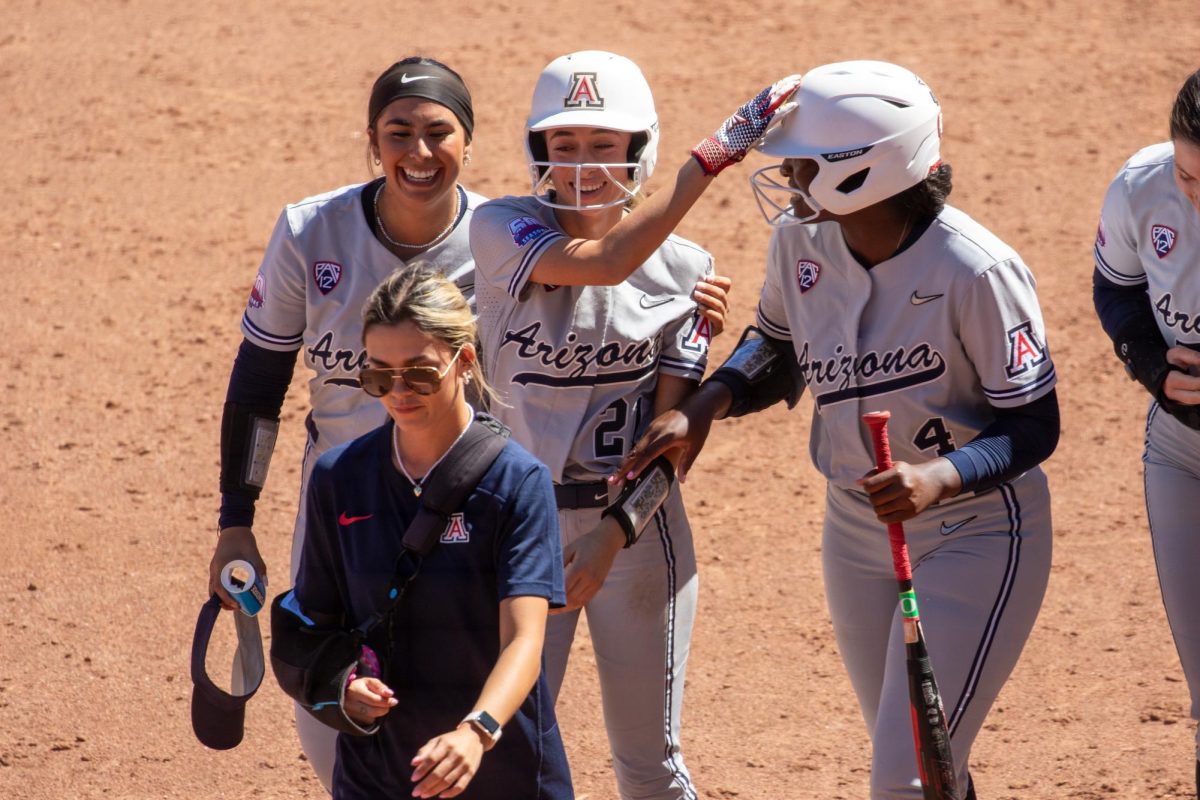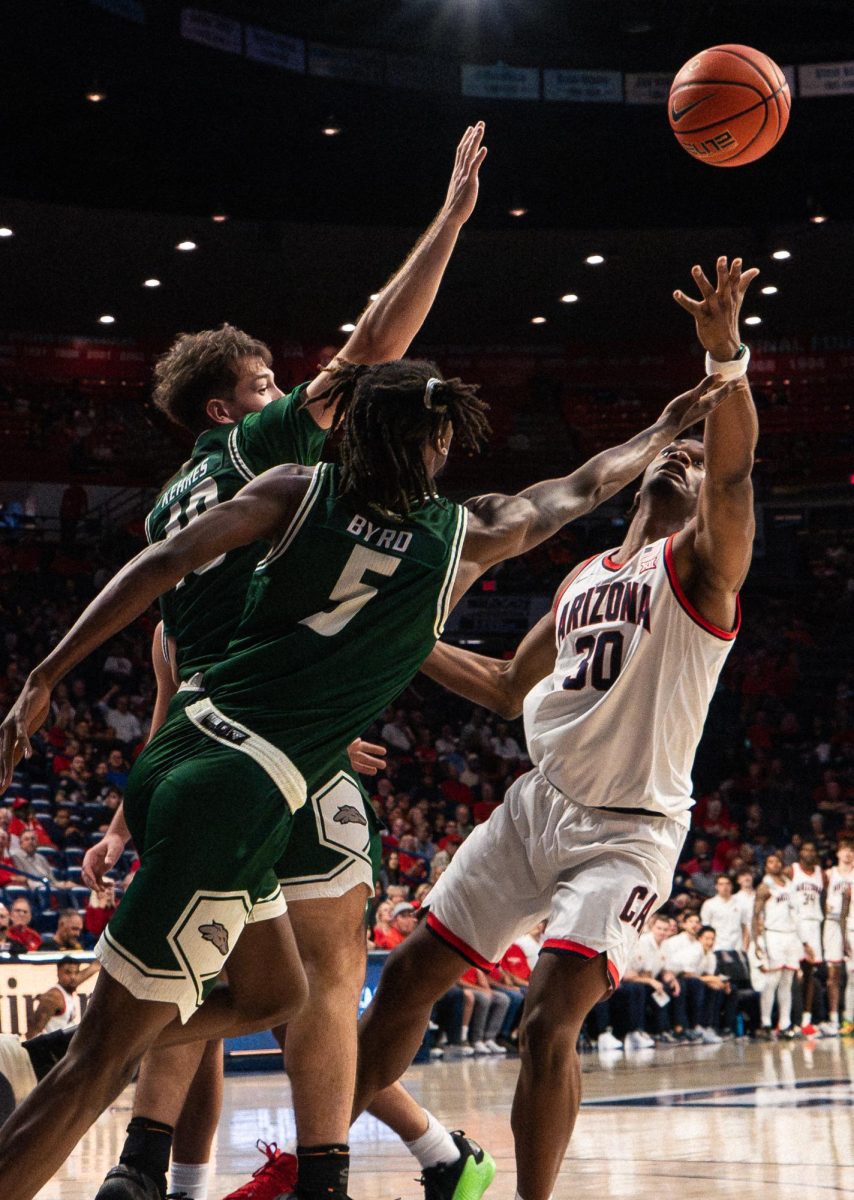OMAHA, Neb. — The last — and only — time Arizona baseball head coach Andy Lopez was two wins away from a national championship, was in 1992 at Pepperdine. He looked in the dugout and saw in his players’ eyes just how bad they wanted to win.
And they did, winning a national championship disposing of Cal State Fullerton in a 3-2 victory.
Lopez’s 1992 champions weren’t front-runners, or a top seeded team with the most talent as other teams in the field. The Waves were seventh-seeded in an eight-team bracket.
“They weren’t expected to win,” starting pitcher Kurt Heyer said. “They were the seventh seed to make it in and they just had a chip on their shoulder and did what they had to do.”
Lopez’s current team is playing with the same chip on their shoulder.
Arizona was not billed as a main attraction at this year’s College World Series, despite mopping the floor with each of the last seven opponents they have faced.
Florida, the No. 1 overall seed, led by No. 3 overall pick and Baseball America’s College Player of the Year, Mike Zunino, was eliminated by upstart Kent State, out of the Mid-American Conference, a crowd favorite because of their underdog status.
Then there was the Stony Brook Seawolves, out of Long Island, N.Y., everybody’s underdog. The Seawolves had upset LSU in Baton Rouge, La. A regional four seed, Stony Brook came out of the Coral Gables, Fla., regional, where they were able to slip past Miami and Central Florida.
Florida State waltzed into the tournament after crushing Stanford in their super regional, and had second team All-American and first round draft selection James Ramsey.
South Carolina, two-time defending champs are looking for its third championship in a row, after the Gamecocks won their first title in 2010. Arkansas came into the World Series behind the arms of junior DJ Baxendale and Ryne Stanek, both members of the USA Collegiate National Team.
And then there was Arizona, who was not seeded in the preliminary national bracket, but is arguably the hottest team in the country, after going undefeated in the postseason, with a 16-2 record, dating back to a May 6 loss against Oregon.
Before the Wildcats even played a postseason inning, Lopez predicted that they would need to get hot in order to reach Omaha and play in the CWS.
“That’s what it takes, you have to get hot,” Lopez said before the Tucson regional. “I remember getting hot.”
“We came here, got hot, and rolled through to Omaha, won four straight and won a national championship,” he added, referring to his 1992 team that defeated Arizona in Tucson on their way to a title.
This year’s Wildcats are eerily similar to Lopez’s 1992 Pepperdine team in terms of mentality and what’s gotten them this far in the postseason: pitching and defense, led by Heyer, an 13-2 starter who has pitched into at least the sixth inning in every start this season, and shortstop Alex Mejia, Pac-12 Defensive Player of the Year.
“They had great pitching at the time, when they made it to the postseason and great defense,” Heyer said. “Hopefully, we can do the same.”
But just because there are similarities between Lopez’s 1992 team and his current squad, doesn’t mean they are trying to mirror Pepperdine. The Wildcats have focused on making a name for themselves, and only themselves.
“I don’t think we’re trying to model ourselves after anybody,” Mejia said. “What we have right now is going great for us and it’s gotten us this far in this tournament. We just have to keep riding it.”
So far, Arizona has ridden “it” to the doorstep of joining the lore of former championship Wildcat teams that featured players like two-time MLB World Series champion Terry Francona and Craig Lefferts, the winning pitcher of the 1980 CWS.
“They’re like the ’92 club,” Lopez said. “We’re not as pitching deep, but we have a little more consistent offense in this group. From the third week on, they’ve been who they are right now.”



